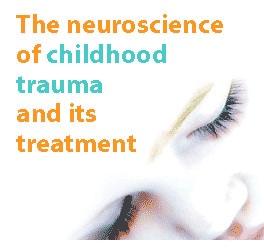
BOOK TO ATTEND
To book a place, either book online or print the booking form and return it to Confer by post.
BOOK ONLINE >>
BOOKING NOW CLOSED - SOLD OUT
Please note - this link takes you to a secure partner website where your booking will be processed.
BOOKING NOW CLOSED - SOLD OUT
Please note - this link takes you to a secure partner website where your booking will be processed.
VENUE
The Marino Conference Centre
Griffith Avenue, Drumcondra, Dublin 9
Griffith Avenue, Drumcondra, Dublin 9
SCHEDULE
SATURDAY 16 MAY 2009
10.00 Start
17.00 End
17.00 End
FEES (paid in £ Sterling)
- Self-funded £110 / approx 110 Euros
- Organisationally-funded £200 / approx 200 Euros
- Optional lunch £15 / approx 15 Euros
The fee includes VAT and light refreshments but please note that the two course lunch is an optional extra.
Invoicing
If your place is being funded by an organisation and you wish to request an invoice, please print out and complete the booking form and post it to us, attaching the name of the person responsible for funding, their full address and phone number.
CPD HOURS
Certificates of Attendance for 7 hours will be provided at the event.
CPD accreditation with the Psychological Society of Ireland: 4 Credits
CPD accreditation with the Psychological Society of Ireland: 4 Credits
BOOKING CONDITIONS
Regrettably, refunds cannot be given in any circumstances as these are impossible to administer fairly and render our budgets unviable. By booking you are entering into a contract with Confer to pay for your place whether you can attend or not. However, you may give your place to another person if you let us know that person's name at least 24 hours before the event begins. We reserve the right to change a speaker at one of our conferences. However, if a solo presenter cancels we will offer a refund or transfer.
ENVIRONMENTAL POLICY
CONFER takes its responsibility for environmental impact very seriously, and we welcome further suggestions.
DR MARGOT SUNDERLAND
The neuroscience of childhood trauma and its treatment.
A one-day training seminar for psychotherapists, psychologists and child specialists
The neuroscience of childhood trauma and its treatment.
A one-day training seminar for psychotherapists, psychologists and child specialists
SATURDAY 16 MAY 2009
ABOUT THIS EVENT
This day of lectures and presentations aims to empower professionals with the latest research on the long-term effects of trauma on the child's developing brain. Dr Sunderland will address the effects of post-traumatic stress, what happens to the brain and how to heal the traumatised mind. She will explore the reasons for the traumatised child's disturbed behaviour, including the repetition of their own trauma by inflicting hurt on others. The seminar will explore how the body is one of the theatres where the memory of trauma is often re-enacted in all manner of stress related symptoms, sleep disorders, illness and hyperaroused states. From the emerging understanding about the neurobiology of trauma, she will explain how it is now clear that physical action is necessary to initiate new ways for the child to perceive reality, to calm some of the most primitive alarm systems in the brain. These therapeutic understandings are also relevant to adults suffering from past childhood trauma.
Up-to-date psychological theories and the latest brain research on the effects of abuse and neglect will be covered as well as the neuroscience of attachment and attachment disorders in light of the trauma of loss and separation.
Most importantly Dr Sunderland will present a variety of effective interventions and evidence based programmes that overcome traumatic repetition. She will consider implications for treatment, right down to the specifics of how to be, what to say, and how to become 'talkable to', so that children and young people can feel safe enough to want to share and work through their traumatic experiences.
Participants will learn:
- to recognise signs and symptoms of trauma in children
- a working knowledge for why a child can move from trauma to violence
- the science of post-traumatic stress in children and young people
- when persistent fighting or hurting points to post-traumatic stress
- interventions based on brain science which have prevented a traumatised child from hardening his heart and losing his humanity
- how to respond when children or young people cut off from their pain, dissociate or treat others as they have been treated
- key tools and techniques for dealing with a child's acute stress states
- the management of your own stress states and what is happening in your brain
- key tools and techniques for connecting with the child or young person who experiences the world as threatening and hostile
- the relational events that are key for a child or young person to move trauma to emotional well- being
SPEAKER'S BIOGRAPHY
CONFER'S SPRING/SUMMER 2009 BROCHURE
Our brochure contains information about Confer events from November 2008 to June 2009. NB this file is very large and may take time to download.
